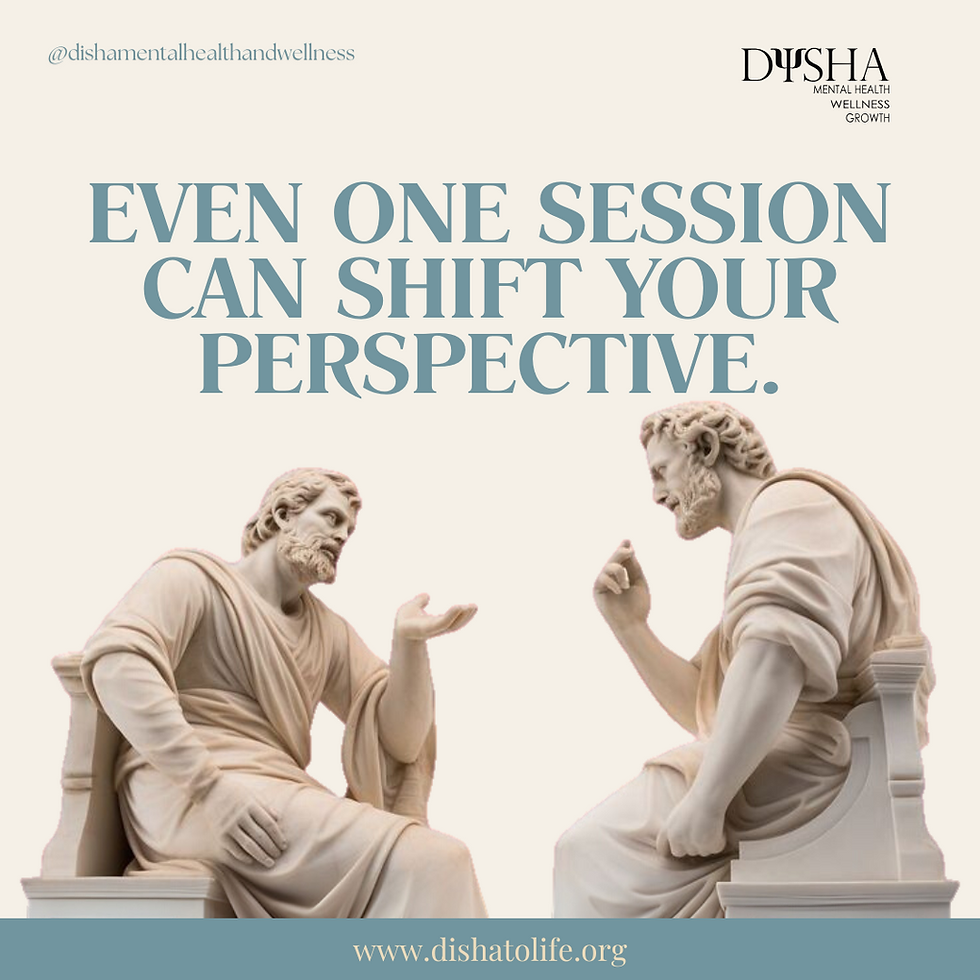Saying No is an Act of Self-Care: The Power of Boundaries
- Mishi Mehta

- Aug 29, 2025
- 2 min read
When most people hear the phrase setting boundaries, they imagine uncomfortable conversations, conflict, or hurting someone’s feelings. It feels selfish to say “no.” But here’s the truth: boundaries aren’t about shutting people out. They’re about protecting your energy, your peace, and your ability to show up as your best self. Boundaries are one of the deepest forms of self-care.
The Myth of “Saying Yes Means You Care”
Many of us grow up with the belief that being a good partner, friend, or employee means always being available. Always saying yes. Always putting others first. The problem? When you live without boundaries, your schedule fills up, your energy drains, and your needs fall to the bottom of the list. You may start to feel resentful, exhausted, or even invisible.
Constantly saying “yes” to others often means saying “no” to yourself, and that’s not sustainable.

Everyday Situations Where Boundaries Matter
Boundaries aren’t just for big, dramatic moments. They show up in small, everyday ways, like:
At work: Saying, “I can’t take this on right now” instead of piling on more tasks.
With friends: Letting someone know you need a quiet night in, even if they’re asking you out.
In family: Protecting your personal time instead of being on-call 24/7.
With yourself: Logging off at night instead of scrolling until 2 AM.
Boundaries as Preventive Care
Think of boundaries like guardrails on a mountain road. Without them, you risk veering off track. With them, you can move forward safely and confidently.
Boundaries prevent small frustrations from turning into big blowups. They reduce stress, save energy, and protect your mental well-being before it gets drained. In the long run, they don’t push people away they bring more clarity and honesty into your connections.
How to Start Setting Boundaries
Setting boundaries can feel awkward at first. But like any skill, it gets easier with practice. Here are a few gentle steps to begin:
Notice your signals: Pay attention to moments when you feel drained, resentful, or overwhelmed. That’s usually a sign your boundary is being crossed.
Start small: You don’t need to start with the hardest conversation. Practice saying no in lower-stakes situations first.
Use simple language: Boundaries don’t need long justifications. “I won’t be able to make it tonight” is enough.
Expect discomfort: It’s normal to feel guilty or nervous at first. That doesn’t mean you’re doing it wrong.
Stay consistent: Boundaries work best when you stick to them. The more consistent you are, the more others will adjust.
A Note to Self - Saying No is an Act of Self-Care: The Power of Boundaries
It’s not about keeping people out; it’s about keeping yourself whole. When you protect your time, energy, and mental space, you have more to give to the people and things that truly matter. Boundaries aren’t barriers. They’re bridges to a healthier, calmer, and more authentic you. (Saying No is an Act of Self-Care: The Power of Boundaries)
Remember: boundaries aren’t about control. They’re about clarity for you and for others. Saying No is an Act of Self-Care: The Power of Boundaries



